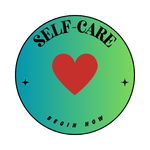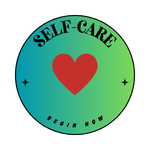Discover the essence of self-care for holistic well-being. Prioritize yourself today.
Defining Self-Care: At its core, self-care is the deliberate and conscious act of tending to one’s own needs and nurturing various aspects of one’s well-being. It encompasses actions and practices that enhance physical health, nurture emotional equilibrium, and promote mental clarity. Self-care goes beyond mere pampering; it is a fundamental practice that empowers individuals to take charge of their health and happiness.
Importance of Self-Care:
- Physical Health Enhancement: One of the cornerstones of self-care is the focus on physical well-being. Engaging in regular exercise, consuming a balanced diet, and ensuring adequate sleep are essential components. Images of a person practicing yoga, enjoying a wholesome meal, or taking a serene walk can emphasize the importance of physical self-care.
- Mental Clarity and Focus: Amidst the chaos of daily life, mental clarity can be a rare commodity. Engaging in mindfulness meditation, journaling, or pursuing hobbies can help rejuvenate the mind. Including images of someone meditating, surrounded by nature, or engrossed in a creative endeavor can depict the mental self-care journey.
- Emotional Resilience: Self-care also involves nurturing emotional health. Spending quality time with loved ones, seeking therapy when needed, and allowing oneself to experience and express emotions are all vital. Images of people laughing, talking with friends, or engaging in therapeutic activities can highlight the emotional well-being aspect of self-care.
- Stress Reduction: The fast-paced world often leads to elevated stress levels. Engaging in activities like reading, taking warm baths, or listening to calming music can help alleviate stress. Including images of serene landscapes, cozy reading nooks, or soothing spa settings can visually reinforce stress reduction through self-care.
- Enhanced Productivity: Paradoxically, taking time for self-care can lead to increased productivity. When individuals prioritize themselves, they recharge and approach tasks with renewed vigor. Images of someone working with focus, perhaps in a well-organized workspace, can showcase the relationship between holistic well-being and productivity.
- Improved Relationships: Self-care equips individuals to cultivate healthier relationships. When individuals are attuned to their needs, they can engage more authentically in their interactions. Images of people engaging in deep conversations, spending quality time with family, or participating in group activities can illustrate the connection between self-care and relationship enhancement.
Practical Ideas:
- Digital Detox: Unplug from screens and immerse yourself in offline activities.

2. Journaling: Dedicate time to reflect on your thoughts, emotions, and experiences.

3. Exercise Routine: Engage in physical activities that bring you joy, whether it’s dancing, hiking, or practicing yoga.

4. Healthy Eating: Prepare and savor nourishing meals that fuel your body.

5. Mindfulness Meditation: Practice mindfulness to stay present and reduce stress.

6. Pampering Sessions: Treat yourself to relaxation through spa-like activities at home.

In a world that constantly demands our attention, dedicating time for self-care becomes an act of self-preservation. Holistic well-being is nurtured through deliberate practices that encompass physical health, mental clarity, emotional resilience, stress reduction, productivity, and improved relationships. By recognizing the significance of self-care and integrating it into our lives, we embark on a journey toward a balanced and fulfilling existence. Remember, prioritizing yourself is not selfish; it’s an essential investment in your overall well-being.







Pingback: “Self-Care Through Gardening: Cultivating Your Inner Harmony” - beginyourselfcare
Pingback: “Elevate Self-Care with a Perfect Pizza Night” - beginyourselfcare
Pingback: “Self-Care and Yoga: A Path to Wellness” - beginyourselfcare
Pingback: “Women’s Retreat Choices: Find Your Fit” - beginyourselfcare
Pingback: “Retreats 2024: Unwind and Rejuvenate” - beginyourselfcare
Pingback: “Nature Walk: Tips for Outdoor Bliss” - beginyourselfcare
Pingback: “Organic Essential Oils: A Pure Guide” - beginyourselfcare
Pingback: “Crafting : A Creative Self-Care Guide” - beginyourselfcare
Pingback: “Essential Oils Aromatherapy Guide” - beginyourselfcare